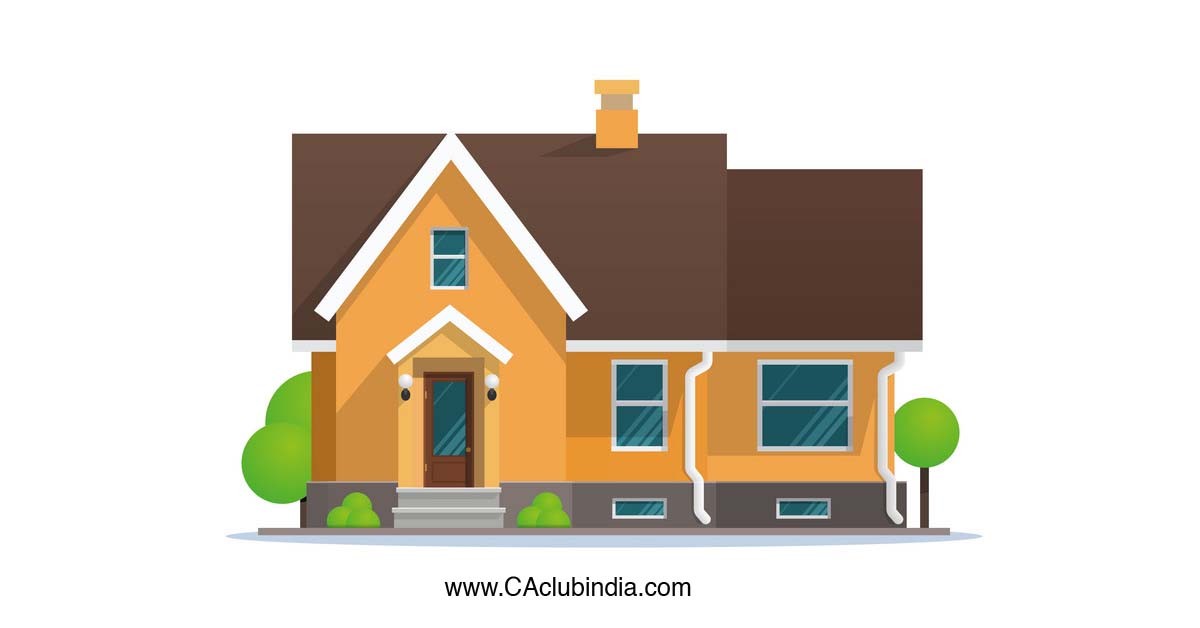Income from house property refers to the rental income or deemed rental income that a person earns from a property they own, whether it's residential or commercial. The property can be located anywhere in India.
In India, the calculation of income from house property is subject to certain rules and deductions as per the Income Tax Act. The following components are taken into consideration while calculating income from house property:
- Gross Annual Value (GAV): This is the potential rental income that a property could fetch if it were rented out at the prevailing market rates.
- Actual Rent Received or Receivable: This is the actual rental income received by the owner of the property during the financial year.
- Municipal Taxes Paid: The amount of municipal taxes paid by the property owner during the year is deducted from the GAV to arrive at the Net Annual Value (NAV).
- Standard Deduction: A standard deduction of 30% of the NAV is allowed to account for repair, maintenance, and other related expenses.
- Interest on Borrowed Capital: If the property owner has taken a loan to purchase, construct, or repair the property, the interest paid on that loan is deductible up to a maximum limit.
- Annual Value (AV): The annual value is the result of deducting the standard deduction and the interest on borrowed capital from the NAV. To know more about annual value click here.
- Income from House Property: The final income from house property is calculated by deducting any deductions allowed under Section 24 (like interest on borrowed capital) from the annual value.

Benefits Available
Tax deduction on home loan interest under Section 24
Rs 2 Lakh Deduction: Owners can claim up to Rs 2 lakh deduction on home loan interest if they live in the house or it's vacant. For rented property, the entire interest is deductible.
Rs 30,000 Limit: If conditions are met:
- Condition I: Loan after April 1, 1999, and purchase/construction not done in 5 years.
- Condition II: Loan before April 1, 1999.
- Condition III: Loan after April 1, 1999, for repairs/renewal.
In these cases, the interest deduction is limited to Rs 30,000.
Tax deduction on principal repayment
Limit: You can claim up to Rs. 1,50,000 deduction on principal repayment within Section 80C's overall limit.
Conditions: To claim this deduction:
- Loan must be for buying or building a new house.
- Property can't be sold within 5 years, or the deduction gets added back to your income in the year of sale.
Deduction under Section 80EE for interest on housing loan
Limit: An individual can claim an additional deduction of up to fifty thousand rupees on interest for a housing loan taken to acquire a house property.
In addition: This deduction is claimed alongside the deduction under the head of house property for interest.
Deduction under Section 80EEA for interest on housing loan
Eligibility: Individuals not covered under Section 80EE can claim an additional deduction of up to one lakh fifty thousand rupees on interest for a housing loan taken to acquire a house property.
In addition: This deduction is claimed in addition to the deduction under the head of house property for interest.
Deduction under Section 80GG for payment of rent
Eligibility: Individuals not receiving House Rent Allowance can claim a deduction for rent paid on a house used for their own residence.
Limits: The deduction is the lowest of these three amounts:
- Five thousand rupees per month.
- Rent paid exceeding 10% of their total income (before this deduction).
- 25% of their total income (before this deduction).
Exceptions: No deduction if the individual, their spouse, minor child, or Hindu Undivided Family owns residential property where they live or work.








 CAclubindia
CAclubindia
